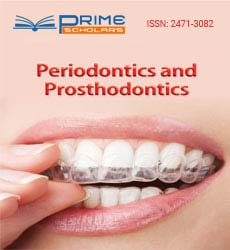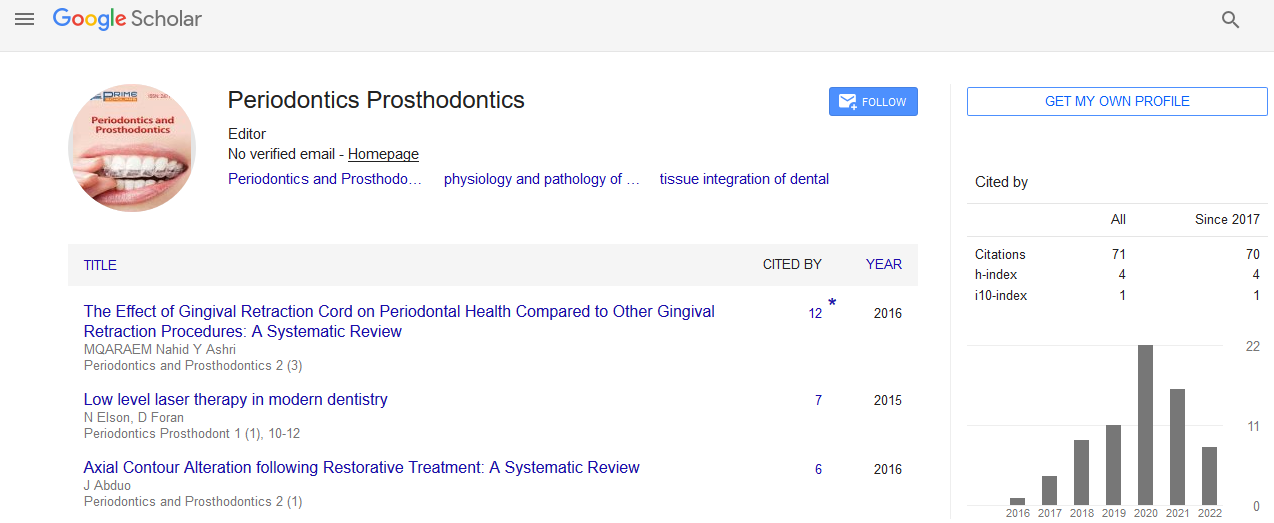Opinion - (2024) Volume 10, Issue 3
Oral Microbiome and Its Impact on Systemic Health
Hiroshi Tanaka*
Department of Oral Biology, Kyoto University, Japan
*Correspondence:
Hiroshi Tanaka, Department of Oral Biology, Kyoto University,
Japan,
Email:
Received: 02-Sep-2024, Manuscript No. IPPDPD-25-21140 ;
Editor assigned: 04-Sep-2024, Pre QC No. IPPDPD-25-21140 (PQ);
Reviewed: 18-Sep-2024, QC No. IPPDPD-25-21140 ;
Revised: 23-Sep-2024, Manuscript No. IPPDPD-25-21140 (R);
Published:
30-Sep-2024, DOI: 10.36648/2471-3082.24.10.25
INTRODUCTION
The oral cavity hosts a diverse and complex microbial community known as the oral microbiome. This community plays a crucial role in maintaining oral health, but imbalances in this microbiome can lead to oral diseases such as caries, periodontitis, and oral candidiasis. Recent research has highlighted the significance of the oral microbiome not just in oral health, but in its broader implications for systemic health. This article explores the intricate relationship between the oral microbiome and various systemic conditions, emphasizing the need for a holistic approach to healthcare that includes maintaining a balanced oral microbiome.
DESCRIPTION
The oral microbiome is composed of bacteria, viruses, fungi, and protozoa that coexist in a delicate balance within the oral cavity. This balance is essential for the prevention of oral diseases and the maintenance of oral homeostasis. Disruptions to the oral microbiome, often caused by poor oral hygiene, diet, or antibiotic use, can lead to dysbiosis, which is associated with both local and systemic health issues. One of the most studied connections is between the oral microbiome and cardiovascular disease. Certain pathogenic bacteria in the oral cavity, such as Porphyromonas gingivitis, have been implicated in the development of atherosclerosis, a condition characterized by the build-up of fatty deposits in the arteries. These bacteria can enter the bloodstream through inflamed gums, contributing to systemic inflammation and the progression of cardiovascular disease. Additionally, the oral microbiome has been linked to metabolic disorders such as diabetes. Dysbiosis in the oral cavity can exacerbate insulin resistance, while hyperglycaemia in diabetic patients can alter the composition of the oral microbiome, creating a vicious cycle that worsens both conditions. The role of the oral microbiome in respiratory health is another area of growing interest. Inhalation of pathogenic oral bacteria has been associated with respiratory infections, including pneumonia and Chronic Obstructive Pulmonary Disease (COPD). Furthermore, emerging research suggests that the oral microbiome may influence the gut microbiome, potentially affecting gastrointestinal health and immune responses. Maintaining a balanced oral microbiome requires consistent oral hygiene practices, including brushing, flossing, and the use of antimicrobial mouthwashes. Diet also plays a significant role; a diet high in sugars and refined carbohydrates can promote the growth of harmful bacteria, leading to dysbiosis. Probiotics and prebiotics have shown promise in supporting a healthy oral microbiome by promoting the growth of beneficial bacteria. Regular dental check-ups are essential for monitoring oral health and preventing dysbiosis. The early detection and treatment of oral diseases can prevent the spread of pathogenic bacteria and reduce the risk of systemic complications.
CONCLUSION
The oral microbiome is a critical factor in both oral and systemic health. Disruptions in the balance of this microbial community can have far-reaching effects, contributing to the development of various systemic diseases. By maintaining good oral hygiene, adopting a healthy diet, and utilizing preventive care, individuals can support a healthy oral microbiome and reduce their risk of systemic health issues. The interconnectedness of oral and systemic health underscores the importance of an integrated approach to healthcare. Recognizing the role of the oral microbiome in overall health can lead to more effective prevention strategies and improved health outcomes.
Acknowledgement
None.
Conflict Of Interest
The author’s declared that they have no conflict of interest.
Citation: Tanaka H (2024) Oral Microbiome and Its Impact on Systemic Health. Periodon Prosthodon. 10:25.
Copyright: © 2024 Tanaka H. This is an open-access article distributed under the terms of the Creative Commons Attribution License, which permits unrestricted use, distribution, and reproduction in any medium, provided the original author and source are credited.

